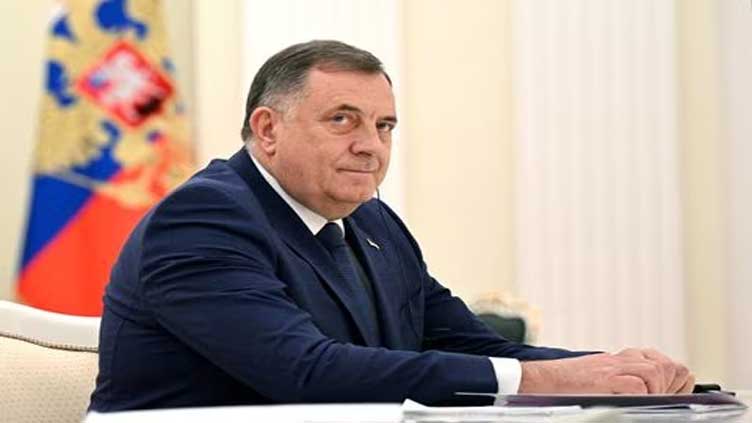Bosnian Serbs dismiss indictment against Dodik

World
Bosnian Serbs dismiss indictment against Dodik
SARAJEVO (Reuters) - Top Bosnian Serb officials on Wednesday dismissed an indictment against their nationalist leader Milorad Dodik as politically motivated, saying they would not recognise decisions by an "unconstitutional court and prosecution".
Dodik, president of Bosnia's autonomous Serb Republic, was charged last month with defying decisions by the international High Representative who oversees peace in the country under the 1995 Dayton Accords that ended 3-1/2 years of ethnic war.
The indictment was issued by state prosecutors in Sarajevo, Bosnia's capital, and confirmed by the state court there. Bosnian Serbs reject their jurisdiction as it was set up by the peace envoy after the war, not by the Dayton treaty.
Dodik has acted to separate his Serb-dominated region from Bosnia over the past two years and repeatedly denounced his political opponents and Western ambassadors to Bosnia, where around 100,000 people died in the 1992-95 war.
"We dismiss indictments against the president of the Serb Republic and others as politically motivated," Dodik told a news conference in the Serb Republic's capital Banja Luka.
"The court and prosecution are not constitutional categories but were imposed by a High Representative and we cannot count on them working in an objective manner."
The current High Representative, Christian Schmidt, amended Bosnia's criminal code in July to provide for prosecutions of those seen as attacking Bosnian state institutions.
Under the code, any official in Bosnia who fails to implement a decision of the international High Representative or obstruct it in any way can be jailed for up to five years.
Under the Dayton treaty, Bosnia was split into two autonomous regions, the Serb Republic and a Federation dominated by Croats and Bosniaks, linked via a weak central government - a blueprint that secured peace but left Bosnia dysfunctional as a state.
The office of the international High Representative overseeing the implementation of the treaty was vested with powers to impose laws and sack officials seen as obstructing the peace.
Dodik was indicted after he signed laws suspending rulings by Bosnia's constitutional court and by the peace envoy.
After the indictment, Dodik's supporters staged protests at Bosnia's internal boundaries between the two regions, and Dodik banned Schmidt from entering the Serb entity.

